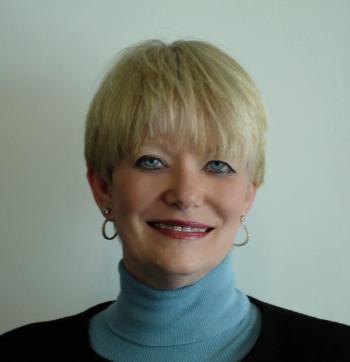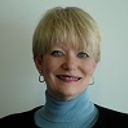
Andria Jacobs, RN, MS, CEN, CPHQ, chief operating officer for PCG Software, discusses 3 billing and claims issues facing the health care industry in the wake of the COVID-19 pandemic.

Ms Jacobs is the chief operating officer for PCG Software and has more than 25 years' experience in the healthcare industry, encompassing both administrative and clinical arenas. Prior to joining PCG, Ms Jacobs was the administrative director, medical management for VertiHealth Administrators. Previously, she was an independent consultant in ambulatory care and practice management, where her clients have included hospitals, physician groups, and the University of California, Los Angeles.

Andria Jacobs, RN, MS, CEN, CPHQ, chief operating officer for PCG Software, discusses 3 billing and claims issues facing the health care industry in the wake of the COVID-19 pandemic.

Medical practices are leaving money on the table by not producing clean medical claims. Incremental improvement can improve cash flow and reduce accounts receivable days, important metrics to determine the health of a medical practice.

The emphasis on holding individuals acccountable for corporate malfeasance has received support from top Department of Justice officials since the change in administration.

Placing seniors on observation status appears to be a tactic to avoid adding to a hosptial's readmission rate, but it hurts seniors financially.

The American Medical Association and more than 650 other organizations support eliminating the Independent Payment Advisory Board, set up as part of Obamacare. The writer supports this position, based on her professional experience, which includes the case of a young woman dying of tuberculosis (TB).

The federal government levies hefty fines for breaches but doesn't have to follow its own rules.

While it remains to be seen how the Trump administration deals with healthcare fraud, preventing fraudulent practices within your organization should be a priority-unless you want to be held personally liable.

While the Merit-based Incentive Payment System (MIPS) has gone into effect for physicians that participate in Medicare Part B, many questions remain about the practicalities of the program. Physicians could also participate in advanced alternative payment models (APMs), but the vast majority of physicians and physician groups are expected to participate in MIPS.

Despite increased regulations and millions in drug distributor and pharmacy fines, opioid addiction continues to kill more than 33,000 people in the US each year. Opioid overdoses have quadrupled since 1999, according to the CDC. Payers and providers should be doing their parts to stem this tragic epidemic by examining claims data more closely.

No matter who is elected president, the exchanges created by the Affordable Care Act are in need of a fix.

Drug prices are rising faster than any other area of healthcare, but solutions aren't so simple. Easing barriers to competition, promoting approval of generic drugs, and increased transparency would help.

The United States loses approximately $100 billion to healthcare fraud annually. Up to $20 billion dollars are due to fraudulent practices in the mental health sector. One of the largest healthcare fraud cases in US history occurred in behavioral health -- one of healthcare’s smallest sectors.

One of the primary drivers of healthcare waste is administrative inefficiency. While the industry implements remedies and solutions with electronic prescriptions and electronic claims transfer and processing, the gorilla in the room that no one mentions is CMS.

Our homes should be sanctuaries-places of refuge and safety-but sadly, fraud is alive and thriving in home healthcare, endangering one of our most fragile and vulnerable patient populations: the homebound and often bed-bound. Defenseless people who may be totally alone, without family or friends.

The number of nurse practitioners (NPs) in the United States has doubled in the last decade, from 106,000 in 2004 to 205,000 in 2014, according to the American Academy of Nurse Practitioners. Similarly, the number of physician assistants (PAs) grew 219% from 2003 to 2013, according to the National Commission on Certification of Physician Assistants.

Medicare and Medicaid billing fraud scams-upcoding and unbundling schemes, double and triple billing, phantom billing and illegal kickback schemes -cost the United States an estimated $100 billion annually, inflating the size of government, escalating healthcare costs and burdening taxpayers.

As co-pays and deductibles in Medicare and commercial health plans become more prevalent, so, too, does the temptation to waive them. But beware.

On January 1, 2015, the Centers for Medicare & Medicaid Service (CMS) introduced 4 Healthcare Common Procedure Coding System modifiers, known collectively as the - X(EPSU) modifiers, as a subset of Current Procedural Terminology (CPT) modifier 59 (distinct procedural service).

Designed to improve physician payment, the Medicare Access and CHIP Reauthorization Act of 2015 is a step in the right direction, and certainly better than the alternative, but it's not magic and it's not enough.

Published: May 7th 2015 | Updated:

Published: May 26th 2015 | Updated:

Published: July 3rd 2015 | Updated:

Published: August 11th 2015 | Updated:

Published: September 18th 2015 | Updated:

Published: November 6th 2015 | Updated:

259 Prospect Plains Rd, Bldg H
Cranbury, NJ 08512
© 2025 MJH Life Sciences®
All rights reserved.
